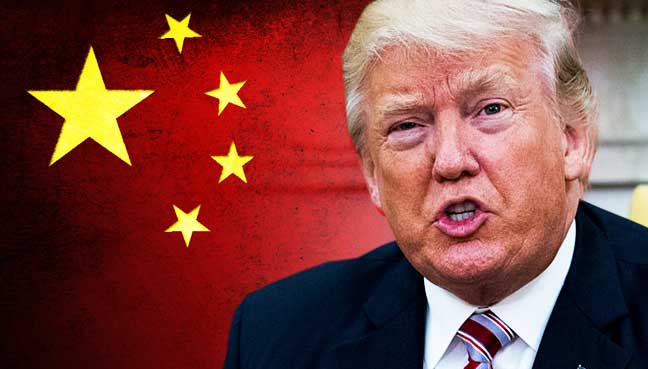
President Donald Trump has announced that the United States will impose additional 50% tariffs on China starting Wednesday if China doesn’t retract its plans to impose a 34% retaliatory duty. Trump posted the warning on Truth Social Monday, signaling an escalation in the ongoing trade war between the two countries.
Deadline for China to Back Down
Trump set a deadline of Tuesday for China to withdraw its new tariffs on U.S. imports, which are set to take effect on Thursday. These duties were announced in response to Trump’s 34% tariffs, part of his reciprocal trade strategy. In his post, Trump also stated that any planned talks with China regarding trade negotiations would be terminated immediately, and that meetings with other countries would begin instead.
If no deal is reached by Tuesday, the U.S. will implement a 104% tariff on Chinese goods starting Wednesday. This includes the new 50% tariff on top of the 34% already announced, and the two 10% increases Trump imposed in February and March. White House Press Secretary Karoline Leavitt confirmed this in a press briefing, highlighting the dramatic escalation in tariffs between the two nations.
China has vowed to retaliate if the U.S. proceeds with the new tariffs, although the specifics of its countermeasures have not yet been revealed. A spokesperson from China’s Ministry of Commerce added that the U.S. should cancel all unilateral tariffs against China to avoid further escalation. China has also recently imposed its own tariffs on various U.S. agricultural products and certain imports, including cars and energy-related items.
This latest move follows Trump’s recent trade policy review, which stated that China has not fulfilled the terms of a 2020 trade deal. The U.S. is also applying tariffs to nearly 60 trading partners, including China, the European Union, and Japan, following a universal 10% baseline tariff implemented this past Saturday.
Author’s Opinion
While Trump’s aggressive approach to tariffs may have domestic appeal, the ripple effects on global trade could harm both U.S. businesses and consumers. The escalating tit-for-tat between the U.S. and China risks triggering a broader economic slowdown that could hurt industries worldwide. A more diplomatic, measured approach to trade relations could ultimately benefit everyone in the long run.
Featured image credit: FMT
Follow us for more breaking news on DMR
